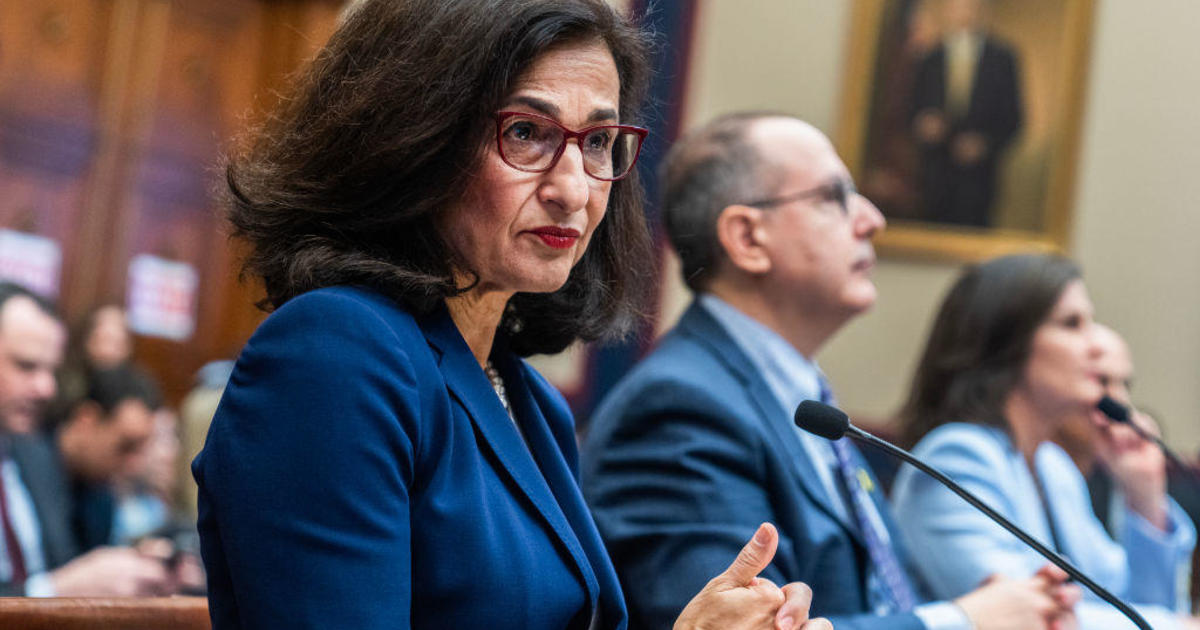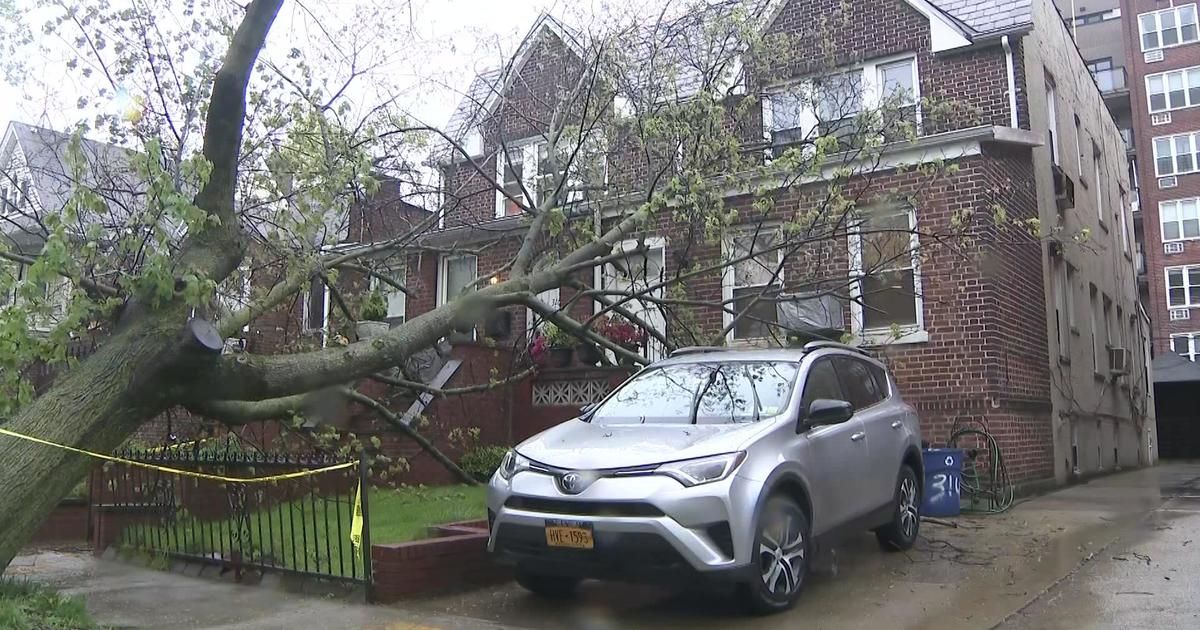President Trump Declares Opioid Crisis A Public Health Emergency
NEW YORK (CBSNewYork/AP) -- President Donald Trump is directing his Department of Health and Human Services to declare the opioid crisis a nationwide public health emergency under the Public Health Service Act.
"This epidemic is a national health emergency,'' Trump said in a speech at the White House, where he bemoaned a crisis he said had spared no segment of American society. "As Americans we cannot allow this to continue."
As CBS2's Jessica Moore reported, the administration's goal is to reduce addiction to prescription pain medication and illicit drugs like heroin and fentanyl.
"Given the scale of this epidemic, with millions of Americans already affected, prevention is not enough. We must also help those who are suffering from addiction by expanding access to lifesaving treatment," said FDA Commissioner Dr. Scott Gottlieb.
The declaration does not come with specific funding, but officials say it will allow changes such as expended access to medical services in rural areas.
The administration says it is working with Congress to add money to the end of the year budget.
"Along with my colleagues I stand ready to work with him on future proposals to provide necessary tools to protect our communities from this scourge," said Sen. Mitch McConnell.
The president backed an additional $45 billion to combat the opioid epidemic as part of the GOP plan to repeal and replace Obamacare, but Republican in-fighting killed the bill.
It will give states the ability to shift funds away from other medical issues such as HIV, diabetes and maternal care to provide more opioid treatments.
Trump will deliver a speech Thursday on fighting the opioid crisis. He's said an emergency designation will give his administration the "power to do things that you can't do right now.''
The president's action stops short of declaring a national emergency to deal with the crisis, something he promised several times to do even as recently as last week.
"It's a very important step; to get to that step, a lot of work has to be done. We're going to be doing it next week," Trump said last Monday.
Thursday's declaration does not require the same financial commitment as a national emergency declaration the president made in the aftermath of hurricanes Irma and Maria, WCBS 880's Marla Diamond reports.
By law, a public health emergency can only last for 90 days, but it can be renewed any number of times, for as long as necessary.
Some advocates worry even that won't make enough difference.
According to the Centers for Disease Control more than 50,000 Americans died of opioid overdoses last year.
"We're not winning the battle. Right now the opioid crisis is getting worse. There are more people dying. There are more people getting addicted than ever before," said Dr. Michael Fiori, director of addictions for Mount Sinai Beth Israel. "Politicians can speak out and declare a crisis, but the question is what are they willing to help turn into real action."
Fiori would like to see the president declare opioid addiction a chronic disease like cancer or diabetes.
"To help combat the enormous shame and stigma that people with addictions feel," Fiori said, adding that Americans need better access to drug treatment programs. "The federal government have fallen short of saying 'this is a known illness that can be treated, that should be covered by all commercial insurances.'"
Democratic House leader Nancy Pelosi also was critical, calling the new declaration "words without the money.''
Trump pledged during his campaign to make fighting addiction a top priority at rallies in some of the hardest-hit states in the nation.
Once in office, Trump convened a commission to study the problem, chaired by New Jersey Gov. Chris Christie.
Christie, in a statement, said Trump was taking "bold action'' that shows "an unprecedented commitment to fighting this epidemic and placing the weight of the presidency behind saving lives across the country.''
Meanwhile, the New York City Department of Health and Mental Hygiene is expanding a program that uses former drug addicts to counsel overdose victims in hospitals.
As WCBS 880's Marla Diamond reported, Maimonides Medical Center is the fourth city hospital to embrace so-called wellness advocates in the emergency room, who take over once the doctors revive an addict with Naloxone.
"I've personally seen how powerful the approach can be," said former addict Robert Faegan. "You can send some of those walls of resistance coming down."
The city is spending $38 million a year in the fight against opioid addiction, and has a goal or reducing fatal drug overdoses by 35 percent over the next five years, said First Lady Chirlane McCray.
"The federal government may be just getting around to declaring the national public health emergency, but here in New York City, we have been fighting," McCray said.
Locally, there were more than 2,612 people killed by opioid overdoses in 2016, half of which were in New York City. There were more than 2,000 in New Jersey, and 917 in Connecticut.
(© Copyright 2017 CBS Broadcasting Inc. All Rights Reserved. The Associated Press contributed to this report.)



